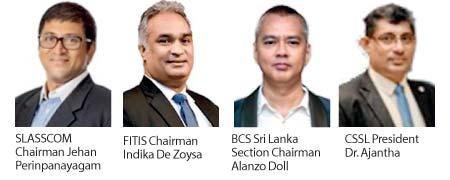Reply To:
Name - Reply Comment
 Sri Lanka’s IT/BPM sector yesterday called on the authorities to re-evaluate the tax measures affecting the export services.
Sri Lanka’s IT/BPM sector yesterday called on the authorities to re-evaluate the tax measures affecting the export services.
Leading industry bodies, including the Sri Lanka Association of Software and Services Companies (SLASSCOM), Federation of Information Technology Industry Sri Lanka (FITIS), BCS Sri Lanka Section (BCS) and Computer Society of Sri Lanka (CSSL), expressed deep concern that the heightened operational costs from these new taxes could stifle innovation and undermine competitiveness.
According to the associations, the Sri Lankan companies may struggle to compete globally against the countries with tax incentives, risking loss of revenue and market share.
“The new taxes could reduce companies’ ability to invest in training, impacting employment opportunities, especially for the underprivileged groups. The additional taxes on the knowledge sector could slow down economic recovery and reduce its contribution to the national economy. Taxing housing will exacerbate the exodus of critical talent, hindering sector growth,” they said in a joint statement.
Despite the recent challenges, Sri Lanka’s IT/BPM industry has continued to grow, with an estimated US $ 2 billion in export revenue in 2023 and over 144,000 IT-BPM professionals employed. Global companies such as EY GDS, Virtusa and HSBC have reaffirmed their commitment to Sri Lanka, contributing significantly to the economy.
The associations noted that compared to the regional countries, Sri Lanka would be one of the highest tax slabs and this, for a growing industry, would prove to be a significant negative and remove one of the strong incentives that the industry has been promoting.
It went on to share that some of the members would be compelled to revisit their expansion plans, which is troubling.
The associations stressed that these changes could severely impact the country’s Digital Economy Strategy 2030, which aims to position Sri Lanka as a leading digital economy in the region.
The strategy relies heavily on the IT and BPM sectors as key drivers of innovation and growth. Disincentivising these industries through increased taxes could undermine the vision and objectives of this long-term strategic plan, leading to missed opportunities and reduced competitiveness on a global scale.
“We propose continuing the tax exemption until 2026, to allow the industry to recover and ensure sustainability. A phased implementation of new tax measures and with provision to offset training and internship costs would help mitigate the impact,” the associations said while pointing out that establishing continuous consultation with industry representatives for sustainable tax policy development is also essential.
The associations stressed that careful policy adjustments could achieve economic stability while fostering a thriving and innovative industry.